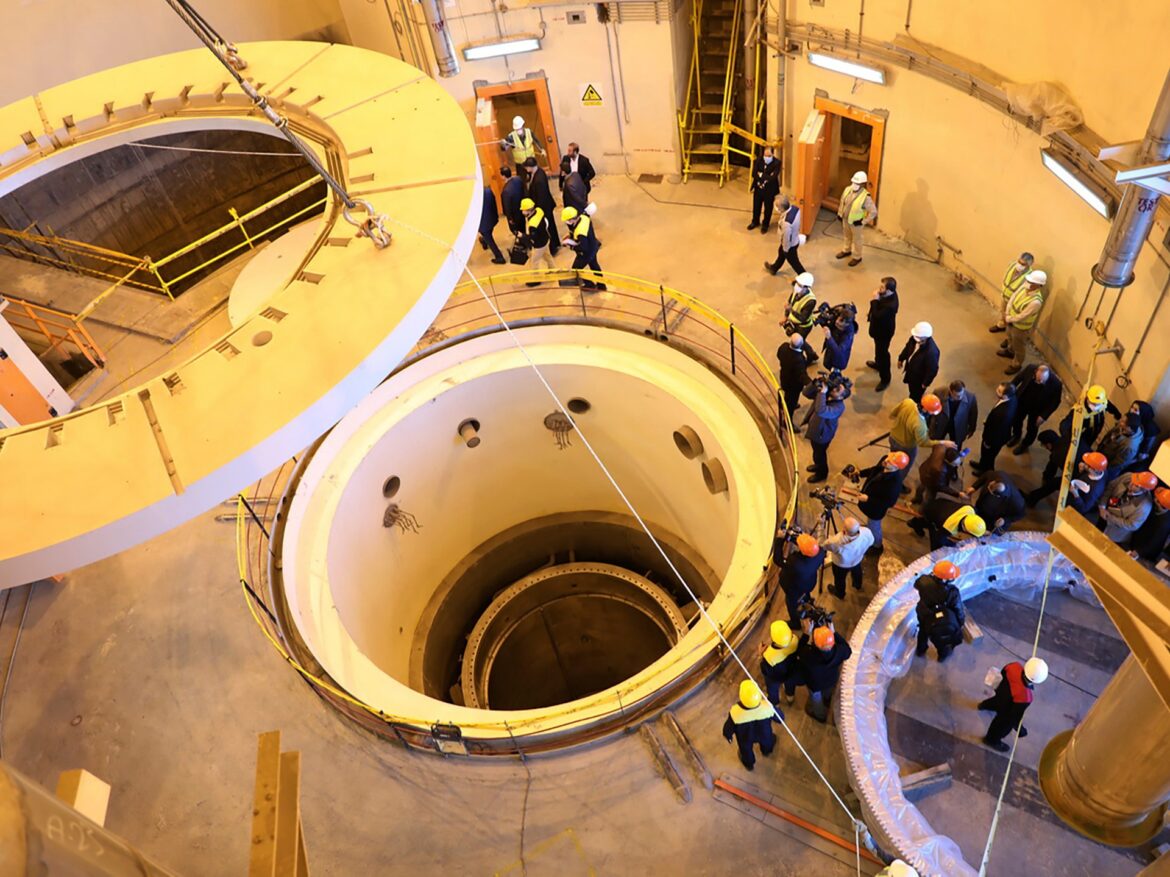Tension has risen between Washington and Tehran amid the war between Israel and Gaza.
The United States has expressed deep concern over reports that Iran has accelerated its production of weapons-grade uranium.
The comments from a White House National Security Council spokesperson came late Tuesday in response to a report released by the International Atomic Energy Agency (IAEA) which warned that Tehran had accelerated production of this high quality material.
“Iran’s nuclear escalation is all the more concerning as Iran-backed proxies continue their dangerous and destabilizing activities in the region, including the recent deadly drone attack and other attempted attacks. attacks in Iraq and Syria and Houthi attacks on commercial shipping in Iran. the Red Sea,” said the American spokesperson.
The report from the United Nations atomic watchdog to member states says Iran has increased the rate at which it produces weapons-grade uranium in recent weeks, reversing an earlier slowdown that began in mid- 2023.
Iran had previously slowed the pace at which it enriched uranium – the process of increasing the level of uranium 235, the isotope used in nuclear fission – to a purity of 60 percent. Uranium enriched to 60 percent is only one step away from weapons-grade levels of 90 percent. Nuclear power plants require 3.67 percent.
The IAEA said its inspectors had verified the increase in the production rate since late November at the Natanz and Fordow facilities to around 9 kg (20 lb) per month, the same production level that Iran maintained at the first half-year 2023 before a decline. to 3 kg (6.6 lb) per month in June.
Iran’s atomic energy chief dismissed those concerns on Wednesday, insisting that Iran has “done nothing new” and is working “according to the rules.”
Iran’s atomic energy chief Mohammad Eslami rejected the IAEA’s warnings on Wednesday, according to Iranian media.
“We have not done anything new and are doing the same activities according to the rules,” he said.
Iranian officials have consistently stated that they have no plans or intentions regarding the creation of nuclear weapons.
Increased tension
Iran appeared to slow its enrichment program earlier this year in a sign of resuming informal negotiations with the United States over a nuclear treaty. But the war between Israel and Gaza has increased tensions between Washington and Tehran.
A confidential IAEA report released last month said Iran’s estimated stockpiles of enriched uranium had reached more than 22 times the limit set in a 2015 deal between Tehran and world powers, limiting Iran’s nuclear activities. Iran in exchange for the lifting of sanctions.
Iran’s total stock of enriched uranium was estimated at 4,486.8 kg (9,891.7 pounds) as of October 28, up 693.1 kg (1,528 pounds) from August, the report said . The limit in the 2015 agreement was set at 202.8 kg (447 lb).
However, that deal collapsed in 2018 when then-President Donald Trump withdrew the United States from it. President Joe Biden tried to revive the deal through negotiations in Vienna, but the process has stalled since the summer of 2022.
Antagonism was already on the rise before Hamas’ attack on Israel on October 7, with Iran offering support for Russia’s invasion of Ukraine.
In September, the IAEA complained that Tehran had effectively banned several of its most senior inspectors from monitoring the country’s nuclear program.



